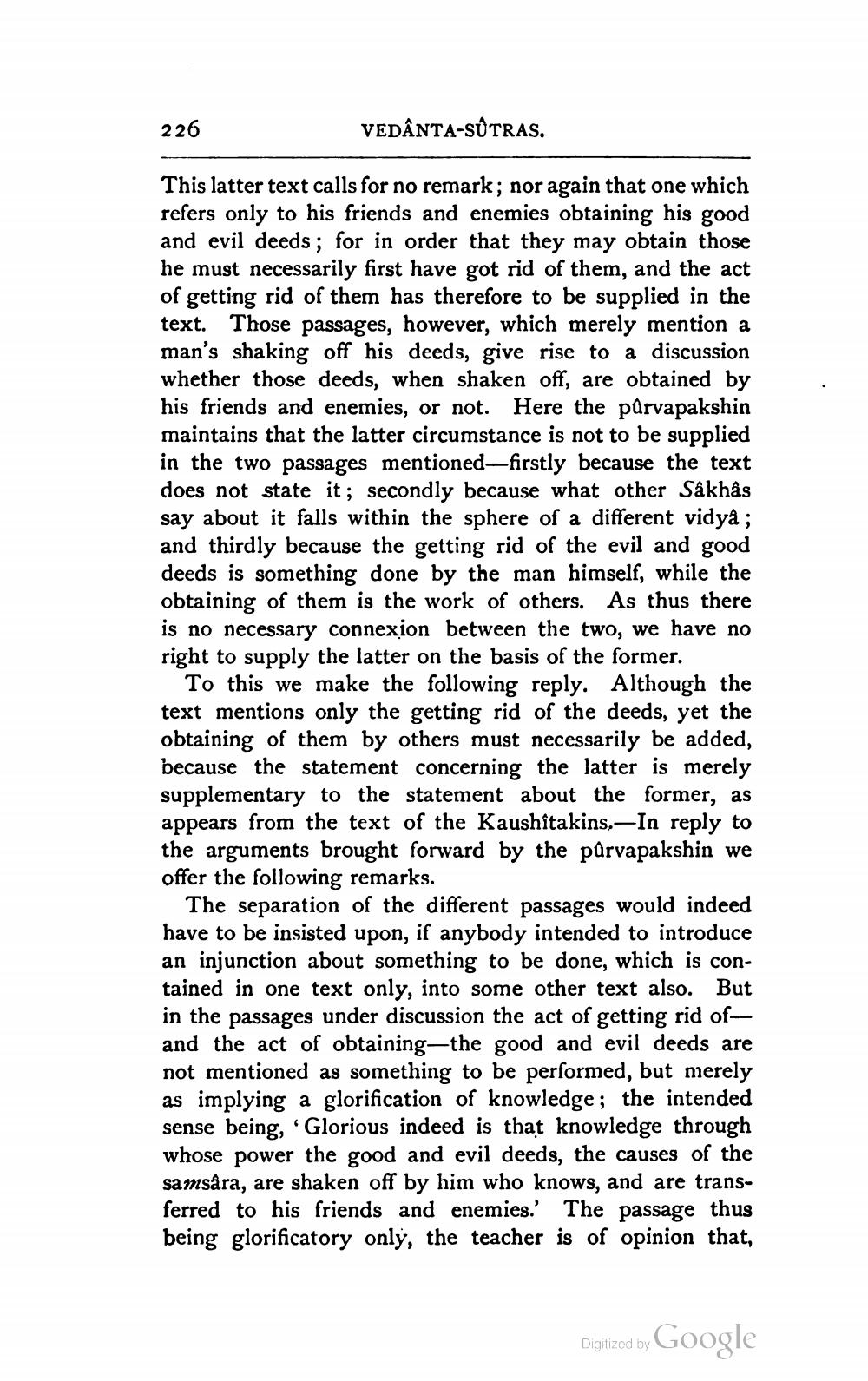________________
226
VEDÂNTA-SÚTRAS.
This latter text calls for no remark; nor again that one which refers only to his friends and enemies obtaining his good and evil deeds; for in order that they may obtain those he must necessarily first have got rid of them, and the act of getting rid of them has therefore to be supplied in the text. Those passages, however, which merely mention a man's shaking off his deeds, give rise to a discussion whether those deeds, when shaken off, are obtained by his friends and enemies, or not. Here the purvapakshin maintains that the latter circumstance is not to be supplied in the two passages mentioned-firstly because the text does not state it; secondly because what other Sâkhâs say about it falls within the sphere of a different vidya ; and thirdly because the getting rid of the evil and good deeds is something done by the man himself, while the obtaining of them is the work of others. As thus there is no necessary connexion between the two, we have no right to supply the latter on the basis of the former.
To this we make the following reply. Although the text mentions only the getting rid of the deeds, yet the obtaining of them by others must necessarily be added, because the statement concerning the latter is merely supplementary to the statement about the former, as appears from the text of the Kaushitakins.—In reply to the arguments brought forward by the purvapakshin we offer the following remarks.
The separation of the different passages would indeed have to be insisted upon, if anybody intended to introduce an injunction about something to be done, which is contained in one text only, into some other text also. But in the passages under discussion the act of getting rid ofand the act of obtaining—the good and evil deeds are not mentioned as something to be performed, but merely as implying a glorification of knowledge; the intended sense being, Glorious indeed is that knowledge through whose power the good and evil deeds, the causes of the samsåra, are shaken off by him who knows, and are transferred to his friends and enemies. The passage thus being glorificatory only, the teacher is of opinion that,
Digitized by
Digitized by Google




